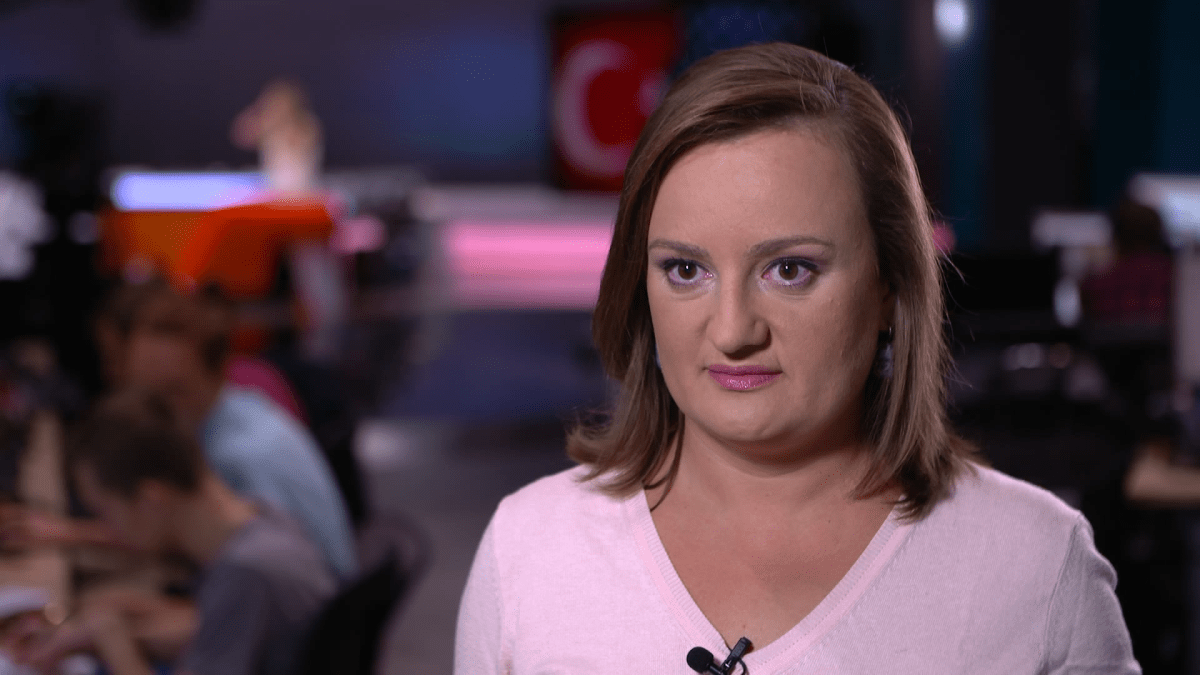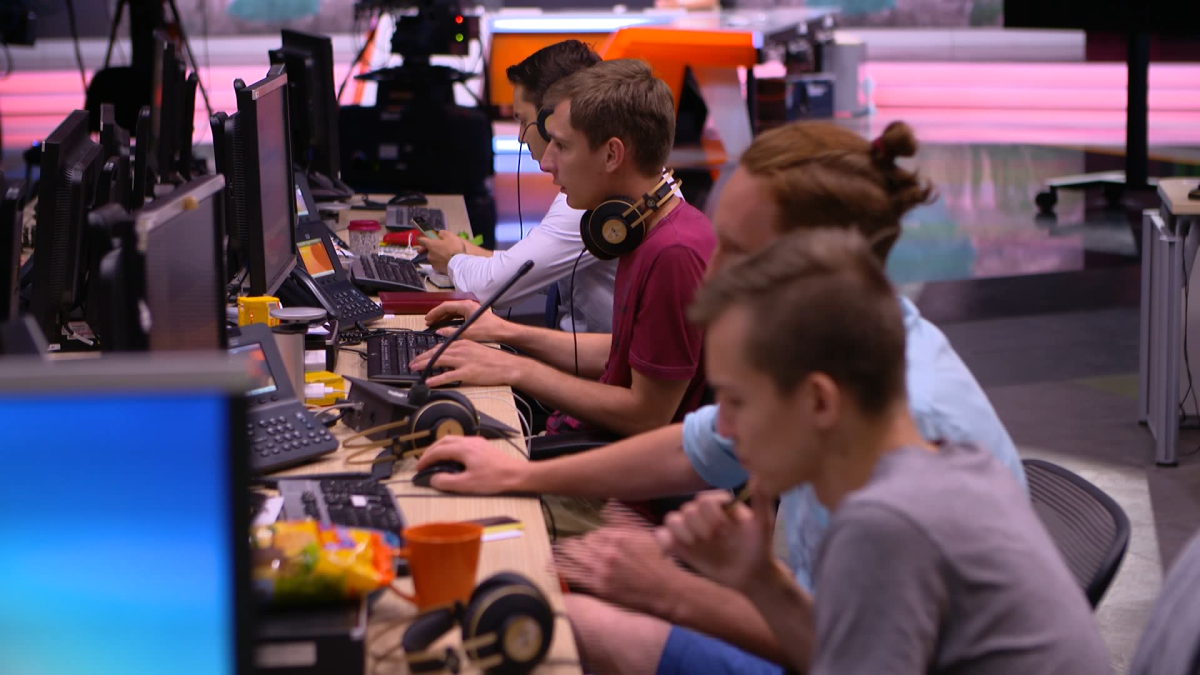TV news audiences have been shrinking for years, but one of the world’s most controversial news networks is bucking the trend. RT, formerly Russia Today, is a Kremlin-funded TV channel that’s broadcast outside of Russia to more than 100 countries, including Canada.

RT is the most popular global news network on YouTube, with around 7 billion online views across its English, Spanish and Arabic language channels. And between 2015 and 2017, its TV audience grew by a third.
The Russian network covers many of the same stories as the traditional Western news media, but through a much different lens.
“RT is a challenger brand,” said Anna Belkina, the network’s deputy editor-in-chief. “We’re showing a different picture of the world; the one that sometimes very much contradicts what they’re used to seeing.”
The broadcaster provides the Russian view of global events, which at times can seem like a parallel universe to the version portrayed on American networks.
Take Syria, for example, where Russia is supporting the Syrian military in its seven-year civil war. RT’s coverage paints Bashar al-Assad — not as a brutal dictator guilty of war crimes — but as the victim of a Western plot.
The network has claimed numerous chemical weapons attacks against civilians in Syria — which UN investigators blamed on government forces — were actually staged by British intelligence.
And the Syrian rescue group known as the “White Helmets” — heralded as heroes in the West and recently rescued and welcomed to Canada — are branded as terrorists.

Get breaking National news
“Our role is to go in and say, ‘You need to look at the facts. You need to consider other facts, not alternative facts.’ We very firmly believe that facts are facts — but we see quite a lot of them are brushed aside and ignored,” Belkina told Global News in Moscow.
RT’s coverage has prompted a flurry of allegations and investigations from governments and regulators in Europe and North America. Last year, United States intelligence agencies called RT a “Kremlin-directed campaign to undermine faith in the U.S. government,” and its American subsidiary was forced to register as a “foreign agent.”
But RT is quick to point the finger right back. “We turn on the likes of CNN and BBC and see voices, ‘experts’ so to speak, that have claimed, for example, that the Malaysian jet (MH370) that disappeared over the South Pacific was hijacked on the orders of President Putin,” said Belkina, a reference to news reports featuring interviews with American author Jeff Wise.
“It’s pretty much anything goes in the mainstream Western media, as long as it fits within that mainstream media narrative.”
WATCH: Malaysia Airlines Flight MH17 shot down, crashes in Ukraine (July 2014)
“We have two belief systems,” said Jeremy Kinsman, Canada’s former ambassador to Russia and to the U.K.
“I don’t know if everybody at RT understands it as propaganda. They like what they’re saying and that’s part of the problem. And once you de-value facts, it’s problematic finding out what the true facts are.”
Competing narratives between West and East are nothing new, but the credibility of traditional Western news organizations is under threat like never before.
The internet has spawned a growing number of “alternative” news sources online. And while RT has been attacking the Western media’s coverage for years, the broadcaster recently found an unlikely ally in the White House.
Donald Trump has made “fake news” a household term. Anton Fedyashin, a professor of Russian history at American University, said both RT and the U.S. president have effectively tapped into the same growing anti-establishment sentiment and distrust.
WATCH: Trump says he’d rather have fake news than censorship

“If you read stuff that was published about the internet about 20 years ago, when it was still a fairly young experiment, the overall approach was one of optimism; that free and constant access to enormous amounts of information and views were supposed to liberate the individual to make up their own sort of opinion about the world,” Fedyashin explained.
“But what we’ve realized since it’s been happening over this time, is that people sort of choose to follow the sources that they tend to agree with emotionally.”
While RT has made gains, its audiences remain small compared to mainstream American or British networks such as CNN and the BBC.
And the relentless “fake news” attacks may also be having an unintended effect: For the first time in years, recent opinion polls show public trust in traditional Western media outlets is rising.










Comments
Want to discuss? Please read our Commenting Policy first.